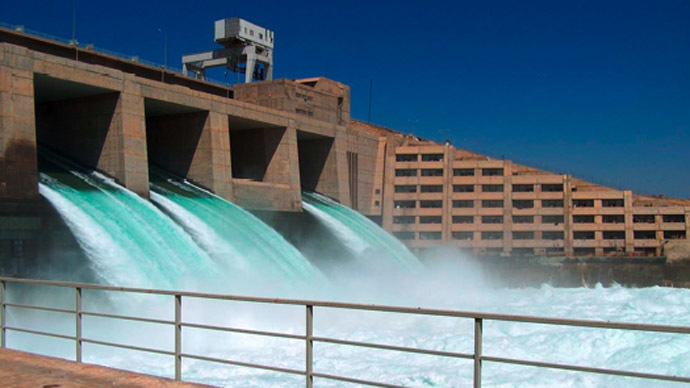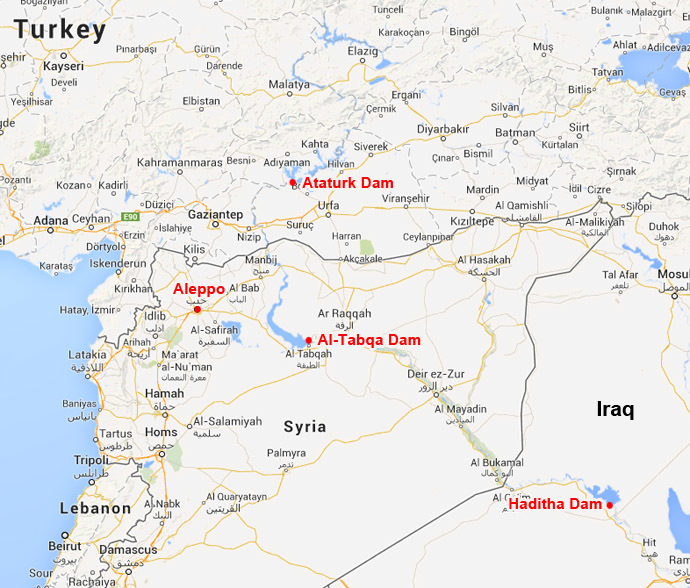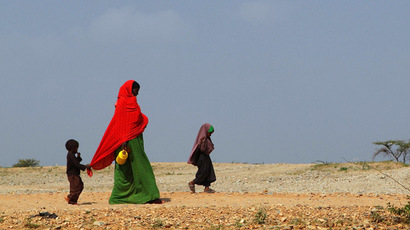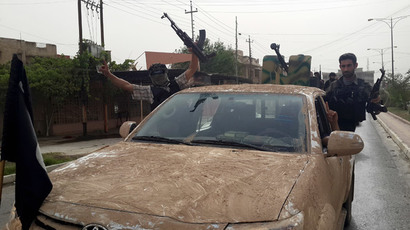Islamic State militants threaten Turkey with violence if Euphrates water supply not restored

Islamic State militants have directly threatened Turkey with violence as they swore to “liberate” Istanbul in order to reopen a dam on the Euphrates River. Water flow to parts of Syria and Iraq is at a record low.
The apparent closure is especially unfavorable to the terrorist group, as its new ‘capital’ Raqqa, in northern Syria, is in that zone. This is creating a humanitarian catastrophe as water levels plummet in nearby Lake Assad.
In a new Vice documentary episode on the IS militia, one member warns that if the Turkish government doesn’t open the Euphrates Dam back up, the group will do it for them by “liberating” Istanbul.
"I pray to God that the apostate [Turkish] government reconsiders its decisions. Because if they do not reconsider it now, we will reconsider it for them by liberating İstanbul," Abu Mosa, the spokesman for the group, tells the camera during the filming of the five-episode documentary in Raqqa. He makes sure to identify this as “a clear threat.”
The documentary is among the most in-depth looks at Islamic State militants, their lives, practices, and even indoctrination of children into their way of thinking.
Recent fierce fighting around the Mosul, Tabqa and Haditha Dams in Iraq has given the militants a large degree of control, as they took areas from Kurdish fighters. The dams are among the largest in the country.
Islamic State jihadists seize Iraq's largest dam, 3 towns in offensive vs Kurds
Turkey, Syria and Iraq are all heavily dependent on water from the Euphrates – the main water artery that runs through the region. Fair use of the river has been a problem for the three since the 1970s. Natural drought can be an immense driver of conflict in itself, not to mention deliberate blockages.
On May 13, the Syrian government had to cope with a devastating water shortage in Aleppo after extremists reportedly turned it off, putting two million people in mortal danger. However, only two weeks later, the Lebanese newspaper alleged that the Turkish government was complicit in this, allegations that Ankara rejected.
When the water supply was last cut in June, levels in man-made Lake Assad dropped by six meters, putting millions of Syrians without drinking water, the Al-Akhbar newspaper reported. The gradual reduction of water flow had been taking place over a period of a month-and-a-half.
Nonetheless, according to the newspaper, Al-Akhbar’s interview with an anonymous source revealed Turkey had decided to intervene in the Syrian conflict by cutting the water supply from the river, something civilians began to refer to as the “water wars” waged at their expense.

Despite the allegations, some say the water shortages that really hit hard in July are the work of the Islamic State. One anonymous engineer at the Tabqa dam told Al Jazeera that "the whole drop happened since the Islamic State group took over. They took control and then we saw major issues… "Deterioration of the [lake's] level all happened within one month."
Other reports speak of illegal water drawn for the purposes of irrigation. No blame can be attributed with certainty in a chaotic situation that also involves the worst drought in 60 years, with rainfall down by 50-85 percent since October 2013.
The Turkish government has also recently been in the spotlight with allegations that it helped Islamic State expansion by turning a blind eye to militants passing through its borders into Syria, where Turkish views align with those of the Sunni elements fighting President Bashar Assad. Added to this are complaints from Damascus to the UN in March that Turkey was providing cover to rebels crossing the border from Turkish territory, which allegedly included several Al-Qaeda affiliates.
Now, however, the Islamic State militants have set up shop in large swathes of Syria and Iraq, making water their problem as well.
Turkey is currently involved in a hostage situation following the June 11 kidnapping by the IS of 49 of its staff from the consulate in Mosul, Iraq, a situation that still has not been resolved.














